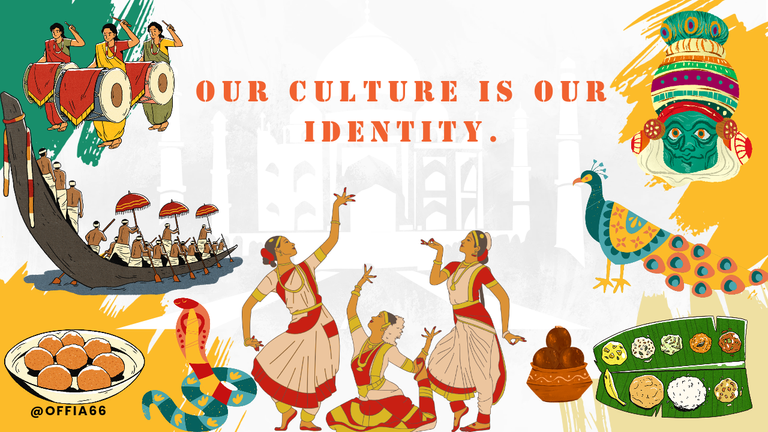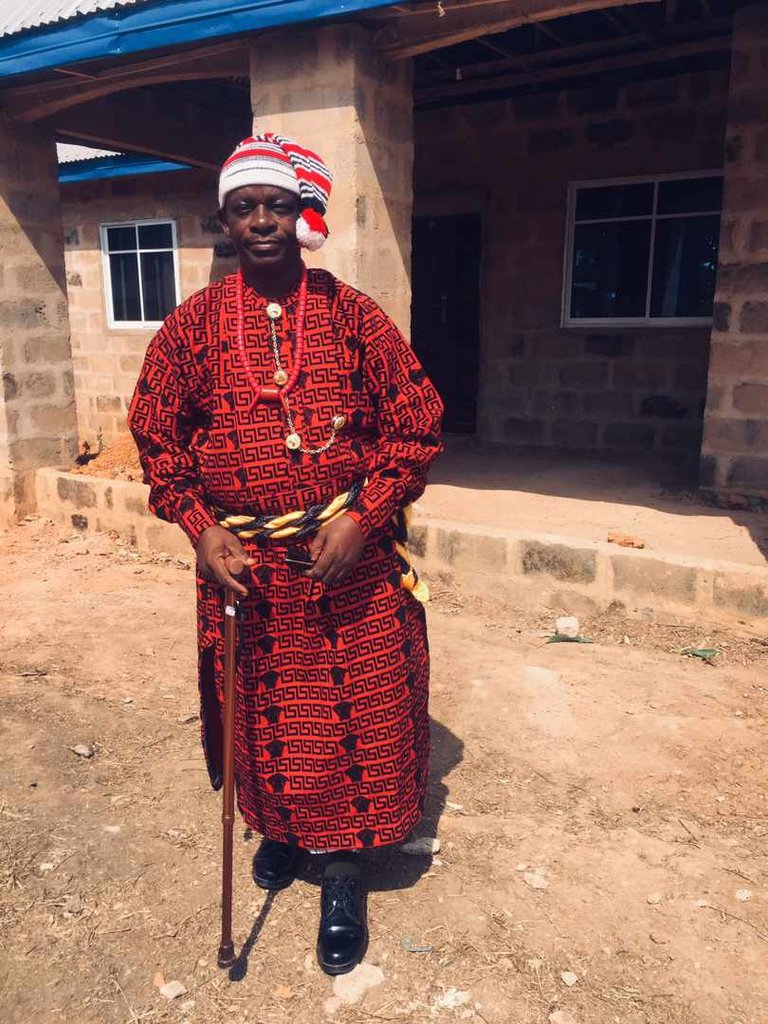Hello, everyone.
Our culture is one of the few ways we are identified; wherever it is presented, people already know which people are known for it. Culture, they say, is the people's way of life; it is the people's beliefs, and these beliefs determine how they act in society. Lately, globalization and technology are forcing these cultures to become a thing of the past; many cultures are no longer observed and are no longer respected like they were back in the day.

designed in canva.
Nigeria is one of the African countries with so many cultures and norms that are observed across the country. We have over 200 ethnic groups, with Igbo, Yoruba, and Hausa as the major ethnic groups. It is really funny how each of these ethnic groups has their own culture and traditions that they observe and respect. Every community you step foot in has a way of life, and as a visitor, it is expected that your host let's you know the dos and don'ts of the community before you break any, as there will be consequences. Many of these communities gave room for globalization and are no longer the rigid communities they used to be.
I happen to be from one of the major ethnic groups; I am Igbo, and Igbos are known to occupy the south-eastern part of the country. I love my culture and what my people do. As you move from one community to another in the Igbo speaking region, you come to realize that the traditions and ways of observing them vary from one community to another. As an Igbo man that I am, I so much to love and respect my people's culture, our traditions, and most of all, our traditional attire, which is one of the things we are known for. Once you see an Igbo man in his attire, you don't need to be told he is Igbo or that the attire belongs to the Igbos.
The Igbos are known for a material called the isi Agu (lion head). This material depicts the head of a roaring lion, which stands for strength and authority. It represents and shows the strength of the Igbos. Also, our language (the Igbo language) is one known around the globe, and once you hear it, you already know it is the Igbo language, as long as you have an idea of what the language sounds like.

Dad rocking out native attire.
The one cultural norm that has existed for years and I have never heard that it was broken is the no-fishing culture in my hometown. Back in the day, the people worshipped a god called Ifeokwayi; they believed it was the source of their water, and all the fish in the bodies of water within the community belonged to it. We have heard many stories about those who accidentally scooped fingerlings while fetching water and a man coming to knock on their doors at midnight and telling them to return them. It is a cultural norm that has existed for years and is still standing to date. Even as Christianity and technology have eaten deep into the community, they still do not practice fishing.
For me, I really do not support such a belief. If community members are allowed to engage in fishing, the people will have other sources of income and not depend completely on farming.
Thanks for reading my post.
This is my entry for day 10 of the InLeo monthly prompt. You can join by clicking the above link.
Posted Using InLeo Alpha
What an interesting fact about your hometown. People do not fish because of their ancestral beliefs. That is very interesting and I don't think I have seen something like this before.
Thank you for sharing this in the #Humanitas community.
Best regards!